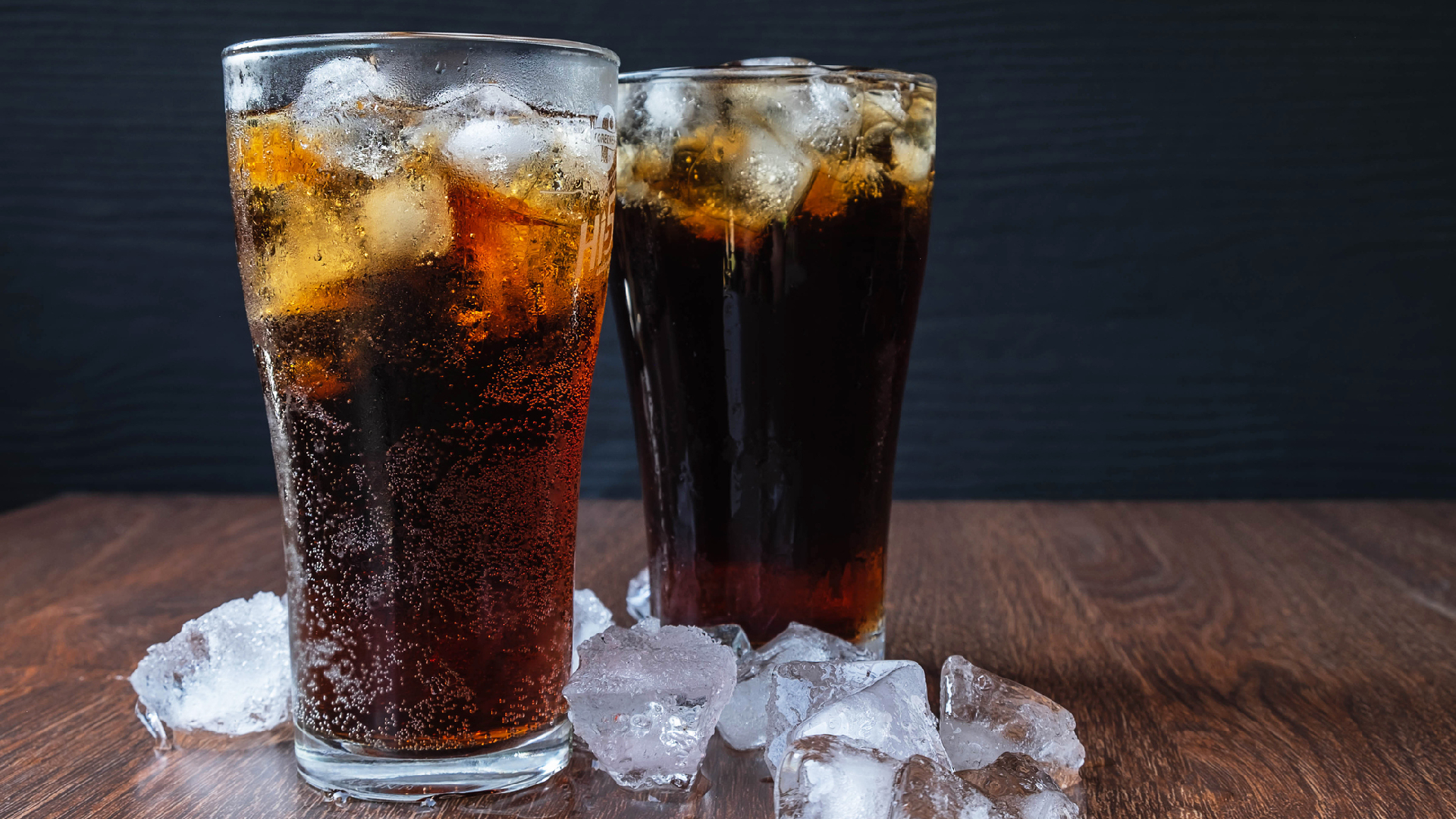Is Diet Coke bad for you?
Making the switch from regular cola might seem like a healthy option — but is Diet Coke bad for you?

Get the world’s most fascinating discoveries delivered straight to your inbox.
You are now subscribed
Your newsletter sign-up was successful
Want to add more newsletters?

Delivered Daily
Daily Newsletter
Sign up for the latest discoveries, groundbreaking research and fascinating breakthroughs that impact you and the wider world direct to your inbox.

Once a week
Life's Little Mysteries
Feed your curiosity with an exclusive mystery every week, solved with science and delivered direct to your inbox before it's seen anywhere else.

Once a week
How It Works
Sign up to our free science & technology newsletter for your weekly fix of fascinating articles, quick quizzes, amazing images, and more

Delivered daily
Space.com Newsletter
Breaking space news, the latest updates on rocket launches, skywatching events and more!

Once a month
Watch This Space
Sign up to our monthly entertainment newsletter to keep up with all our coverage of the latest sci-fi and space movies, tv shows, games and books.

Once a week
Night Sky This Week
Discover this week's must-see night sky events, moon phases, and stunning astrophotos. Sign up for our skywatching newsletter and explore the universe with us!
Join the club
Get full access to premium articles, exclusive features and a growing list of member rewards.
Diet cola is one of the most popular soda options for those who want to enjoy a refreshing drink without the extra calories and sugar. But studies have found that diet sodas might not be as healthy as they're portrayed. So is Diet Coke bad for you, and should we avoid it completely? The answer isn't clear cut — and as with most things, it comes down to moderation.
According to the Centers for Disease Control and Prevention, the number-one source of added sugars in the U.S. diet is sugar-sweetened beverages such as soft drinks, tea and fruit drinks. Hence, as a population, we need to look at reducing the amount of added sugars we’re taking in.
On one hand, switching from regular Coke to Diet can help with this, allowing people to enjoy a soft drink without added sugar. Regular soda also contains empty calories that offer no nutritional benefit. Since Diet Coke is a low calorie alternative, it can be a better option. However, studies suggest that everyday consumption might be harmful to our health.
Is Diet Coke healthier than regular Coke?
Diet soda is certainly a better option than regular soda in terms of calories. This being said, Keri Gans, registered dietitian and spokesperson for the American Dietetic Association, noted that it would be a better choice to choose a beverage with nutritional benefits. "[Like] a glass of low-fat milk or 100% fruit juice, if we're talking about calories," she said. "Ideally, if you want to consume something with zero calories, water is your best choice."
And just because diet soda is 'diet,' doesn’t make it a so-called 'health food,' added Sharon Fowler, epidemiologist at the University of Texas Health Science Center at San Antonio. "In fact, it's not a food at all, it's simply a slurry of chemicals, a number of which may have deleterious effects on the body," she said.

Sharon Parten Fowler is an adjunct assistant professor in the Department of Medicine, School of Medicine, at UT Health San Antonio. She earned a BA from Rice University and an MPH from the UTSPH in Houston.
Is Diet Coke bad for your health?
Research suggest that drinking Diet Coke may come with some health risks. A study in the American Journal of Clinical Nutrition, for example, found that cola (but not other carbonated beverages) was associated with low bone mineral density in women, because of the phosphoric acid it contains. Similar results were seen for regular and Diet Cola.
Fowler also noted that caramel coloring in colas contains substances which have been associated with an increased risk of a number of chronic diseases. Meanwhile, the safety of artificial sweeteners, especially aspartame and sucralose, is debatable, with recent research in the International Journal of Molecular Sciences suggesting they may negatively impact gut health.
Get the world’s most fascinating discoveries delivered straight to your inbox.
"Individuals vary widely in their reactions to these substances," added Fowler. "Because of the very real possibility that irreversible cumulative effects [occur]… I'm convinced that we're in the middle of a very large-scale experiment, and that the whole story of the potential impact of diet sodas on health may not be known for years to come."

A 2012 study published in the Journal of General Internal Medicine also found that people who drank diet soda every day had a 61% higher risk of blood vessel diseases, such as stroke and heart attack, than those who reported not drinking any soda (diet or regular) at all.
Speaking to Live Science, co-author Dr. Mitchell S. V. Elkind, associate chairman of Neurology for Clinical Research and Training at Columbia University in New York, said: "Based on our research, it looks like, at least for the blood vessels, diet soda is not good for people. [But] there've been other studies that have looked at this and not found the same result after they accounted for other confounding risk factors.
"So I wouldn't say our study has proven there's a causative link, but what it does, in my mind, is raise the question that there might be some risk here that we need to study further."

Mitchell Elkind is a tenured professor of neurology and epidemiology at Columbia University Irving Medical Center, and Chief of the Division of Neurology Clinical Outcomes Research and Population Sciences (Neuro CORPS) in the Neurology Department. Dr. Elkind received his medical degree from Harvard Medical School, and he trained in Internal Medicine at Brigham and Women’s Hospital and in Neurology at Massachusetts General Hospital, both in Boston, Massachusetts.
Elkind went on to add that there is also the theory that people who drink sugar-sweetened beverages have an increased risk of diabetes and obesity.
“So, one might suggest that perhaps you can avoid this by drinking diet soda,” he said. “We would argue that you may not be entirely correct — there's still risk associated with diet soda, which could be due to other factors that are associated with drinking diet soda."
The bottom line? Diet Coke does have fewer calories and sugar than regular soda, and therefore some experts think it’s fine in moderation. But others point out that diet soda can increase the risk of stroke and metabolic syndrome. Its long term effects are also unclear.
Originally published on Live Science. This article contains additional reporting done by Amanda Chan in 2013.

Alice is the health channel editor at Live Science. She also reviews tech and fitness products for our buying guides, from air purifiers to treadmills. She has worked across multiple knowledge and wellness brands at Future, including Fit&Well, Coach, T3, TechRadar and Tom's Guide. Alice holds a bachelor's degree in journalism from City, University of London, where she spent a year studying nutrition, dietetics and public health at Queensland University of Technology in Brisbane. A self-confessed running fanatic, she's completed six marathons and qualified for the Boston marathon.
 Live Science Plus
Live Science Plus











